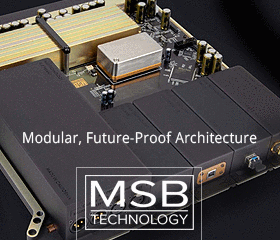Last night I attended my audio society meeting where we were pleased to greet Paul McGowan of PS audio fame. Paul was demo'ing his new DAC that up samples all PCM discs and data to DSD. Paul believes that DSD is a more musical sounding and analog like medium. He talked about how his new DAC can take a simple redbook CD and convert the PCM data to DSD. One of the things that Paul likes about DSD is that it does NOT truncate the signal vs. PCM. Also, he was stating that digital recording and playback has the advantage of much greater dynamic range than vinyl...I believe he said that vinyl has maximum dynamic range of 65db vs Digital has up to 90+ db.
We listened to his new DAC...priced at $6K and did a few AB's with PCM vs DSD and one track that was PCM upscaled to DSD and then re-scaled to PCM..which I felt was the best sound of the lot; although Paul did state that he felt the treble was slightly distorted leading to a slightly more "pleasing" sound....which was very possible.
After listening to the new PS audio DSD DAC, I think it is definitely a contender.
Question is if this is a new trend in DAC's that will take all standard redbook and upscale/convert to DSD.
BTW, for all those who have never met Paul, he is a super knowledgable guy with a great attitude. A real pleasure to have attended his meeting.
We listened to his new DAC...priced at $6K and did a few AB's with PCM vs DSD and one track that was PCM upscaled to DSD and then re-scaled to PCM..which I felt was the best sound of the lot; although Paul did state that he felt the treble was slightly distorted leading to a slightly more "pleasing" sound....which was very possible.
After listening to the new PS audio DSD DAC, I think it is definitely a contender.
Question is if this is a new trend in DAC's that will take all standard redbook and upscale/convert to DSD.
BTW, for all those who have never met Paul, he is a super knowledgable guy with a great attitude. A real pleasure to have attended his meeting.













